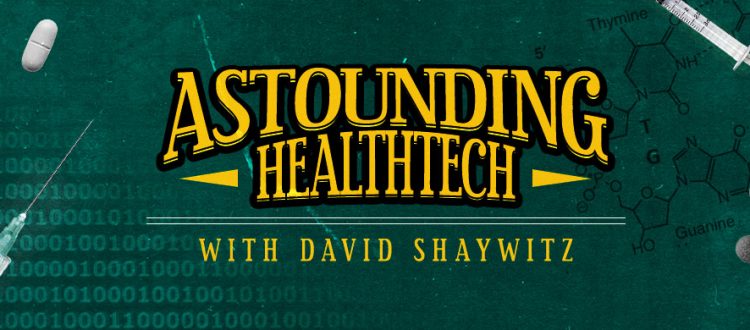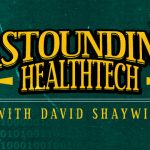New Job, Same Thesis: Aligning Tech & Pharma To Elicit Best Of Both

David Shaywitz
With the New Year, I’m very excited to share a professional update: as of January 1, I’m the proud founder of “Astounding HealthTech,” providing advisory services to R&D-driven biopharma organizations and health tech startups striving to engage each other more effectively.
The mission of Astounding is to catalyze drug development by aligning the specific capabilities and distinct needs of individual health technology startups and R&D-driven biopharmaceutical companies to elicit the best of both.
Emerging health tech opportunities are:
- Increasingly abundant and compelling;
- Intriguing but largely peripheral to R&D today;
- Going to be core to R&D in the near future.
Tech and Pharma: Not There Yet…
As the head of R&D at a leading U.S. pharmaceutical giant recently told me, “everyone is convinced of the importance of applying more contemporary information technology to healthcare, but the impact thus far has been modest,” adding “meaningful applications [of AI] in my world remain elusive.” A colleague at another large pharma said of his company’s dalliance with digital, “it’s like the transplant didn’t take.” Hype about the “digital transformation journey” aside, tech still seems to be struggling for traction within large pharma R&D organizations, and it appears some prominent pharma companies that have embraced digital the most enthusiastically are suffering from the most severe institutional indigestion.
…But Looking At Each Other For Good Reason
Despite the challenges healthcare systems and biopharma companies are encountering with tech today, it’s clear why they’re curious: not only do emerging technologies hold exceptional promise, as demonstrated in a range of other domains, but there’s a profound need to dramatically improve how we go about delivering care and developing therapeutics – especially given the escalating concerns about costs.
Tech Already Permeating Science
Ultimately, digital and data science will have the greatest impact when these methods permeate the way biomedical science is done, and R&D leaders are as fluent in these approaches as they are in molecular biology today; it will be an additional, not an alternate, competency, but one that will matter only when it’s clear such understanding is critical for delivering scientific results. This future may not be far off; already, data science is filtering its way into curricula and course selections, from medical school to high school.
Aligning Tech & Pharma To Deliver Best Of Both
A historical look at technology cycles reveals that transformative approaches tend not to transform immediately or evenly; it takes time to figure out how to leverage new technology, and deep domain expertise to determine where specifically to aim it. If you believe, as I do, that:
- Advances in data science, technology, and digital health, collectively enabled by astonishing advances in computing power and speed, are beginning to permeate how science is done, redefining the sorts of questions we can contemplate and the way we can pursue them; and
- These advances have generally not yet reached the point of effective implementation in healthcare and biopharma;
then you can appreciate both the irresistible draw of this interface and the emerging need for pragmatic insight informed by fluency with emerging technologies and experience making medicines. This is the motivation for Astounding: to guide health tech startups and R&D-driven biopharmaceutical companies through this period of profound uncertainty and enormous change, and collaboratively reimagine the future of drug development.





